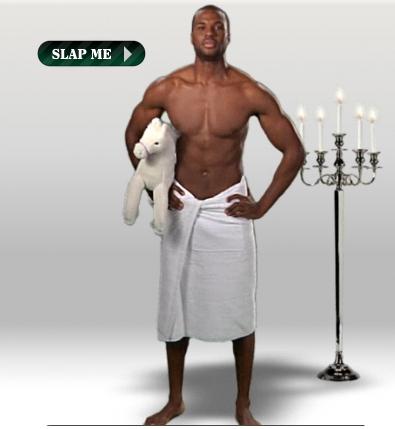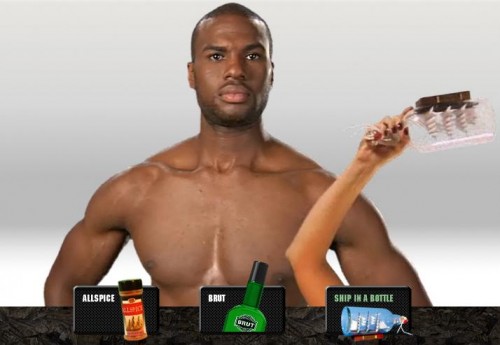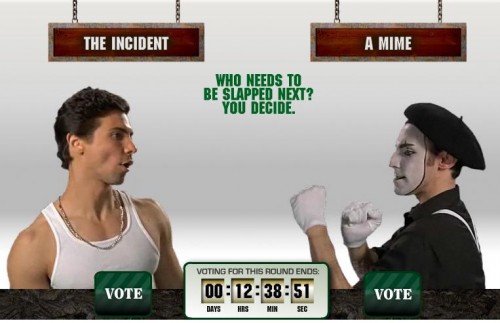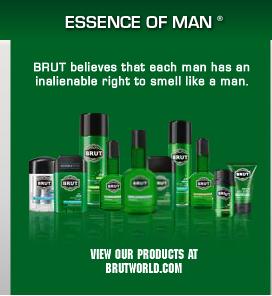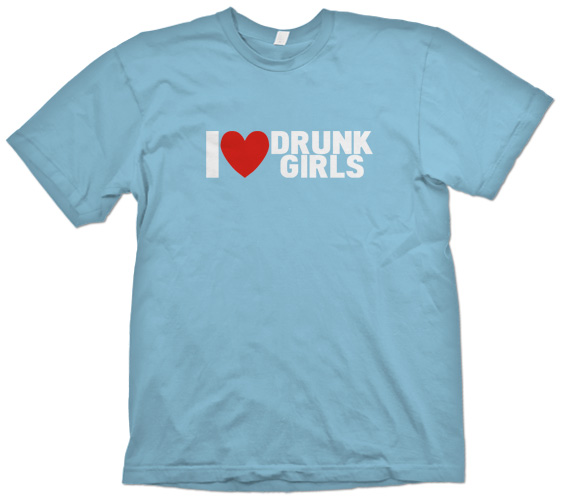Cross-posted at Jezebel.
Since Lisa posted about the Old Spice guy today, I thought I’d post about a reaction to it. Stephanie V. let us know about Brut’s new feature on their website, Some Men Just Need to be Slapped. The…game (?) presents Man in a Towel, clearly meant as a parody of the Old Spice character:
You are then invited to slap him with various items:
In each case the hand shown slapping him is a woman’s, though for some reason when you click the option to slap him with Brut, it’s just an empty hand, not the actual bottle. Presumably her palm has Brut on it.
You can also then choose who should be the next slapping option — a character called The Incident (a parody of The Situation from Jersey Shore) or a mime:
Brut is going with the theme common in men’s hygiene products, which is to reinforce a certain stereotypical type of masculinity. Their website refers to Brut as “essence of man”:
As Stephanie says, “I didn’t even know they still made Brut — but clearly they’re trying to hone in on the Old Spice crowd by challenging their manhood.” And how better to denigrate a guy as insufficiently masculine? Show him being slapped by a woman, of course.

